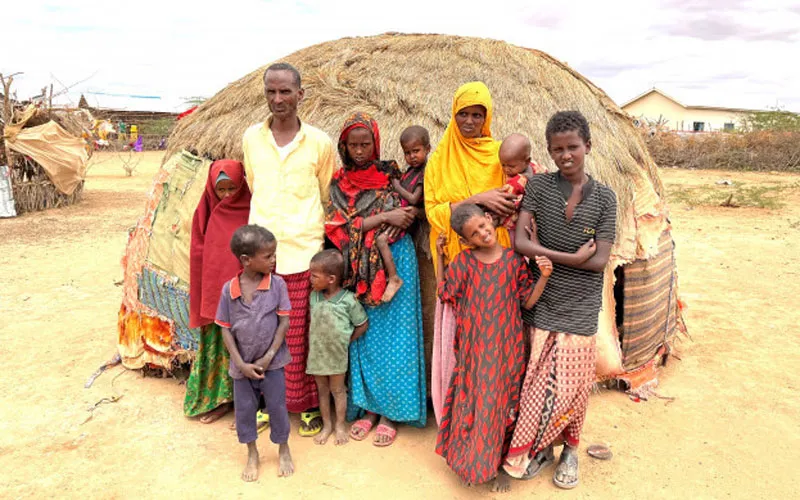Currently, Mr. Healy continues in the July 11 report, “the world is focused on the dreadful crisis in Ukraine, but we must not forget what is happening here in Somalia and the Horn of Africa. Thousands of people are at risk of dying.”
The Trócaire official says that the situation in Somalia that is as a result of food shortage is aggravated by climate change and that children are the most affected. He says, “Children are the most vulnerable. There is limited access to food, and prices are rising due to the war in Ukraine.”
Mr. Healy further says, “Climate change is wreaking havoc. Severe water shortages have heightened the risk of disease outbreaks, with people and animals now competing for untreated water from hand-dug shallow wells and dwindling rivers.”
He makes reference to Luug Hospital in Somalia’s Gedo region and says that the team at the health facility has been “feeling the impact of drought in recent months”.
The Country Director with Trocaire in Somalia says, “In January we admitted 66 patients to our stabilization unit in Luug Hospital. In May this figure had jumped to over 200, a three-fold increase. The pressure on our services is increasing all the time.”
Speaking further on the crisis in Ukraine, the native of Dublin, Ireland, says that the crisis has escalated the situation in Somalia as prices of most commodities have skyrocketed.
“Russia’s invasion of Ukraine is exacerbating the crisis, cutting off most of the wheat imports that Somalia depends on, and sharply increasing the prices of fuel, food and fertilizer,” Mr. Healy says in the July 11 report.
The Trocaire official who has been serving the Irish Catholic entity for at least two decades says that what is happening on the ground in the Horn of African country is distressing.
The report indicates that in Somalia, Trócaire is reaching over 215,000 people with lifesaving services every year through its health facilities in Luug, Dollow, Garbaharey, Belet Hawa and Burdhubo.
“Key aspects of the work are supported by the Irish government through Irish Aid, and recently Trócaire has implemented a new EU-funded programme targeting vulnerable, hard-to-reach populations,” the July 11 report indicates, adding that approximately 7.7 million people are experiencing hunger in Somalia and are in need of serious humanitarian intervention.








